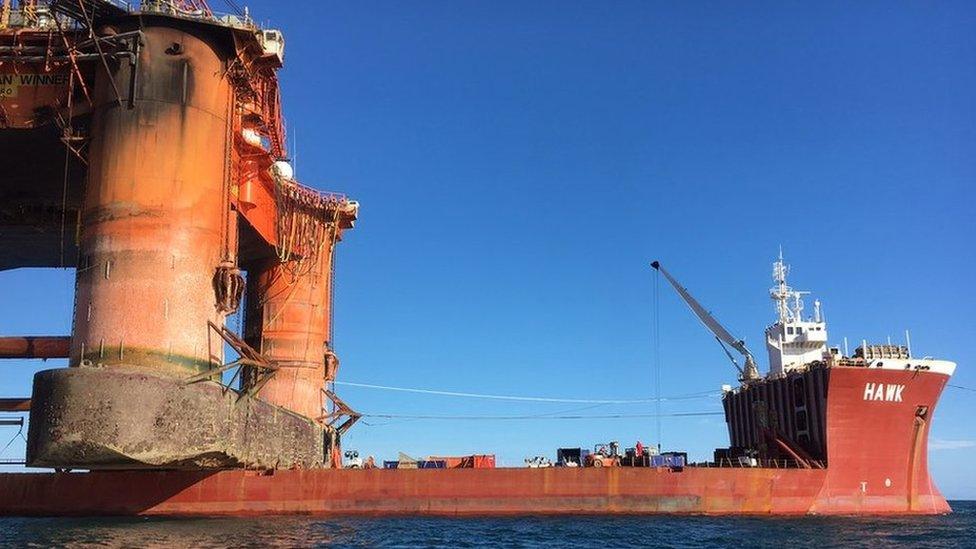Decommissioning: 1m tonnes of oil and gas equipment coming ashore
- Published
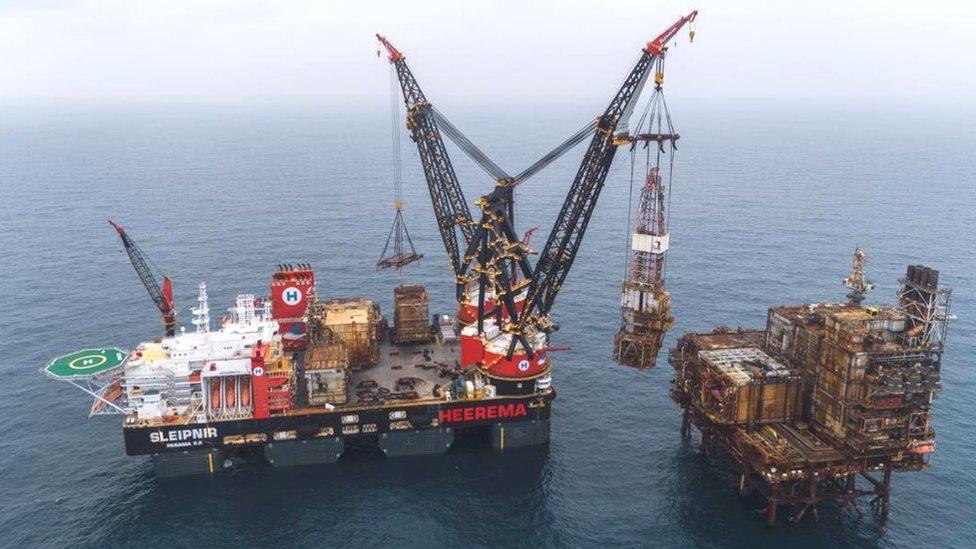
Decommissioning work is expected to rise again after a decline
More than 1m tonnes of disused offshore infrastructure could be brought ashore for reuse, recycling or disposal in the next decade, it has been claimed.
Industry body Oil and Gas UK (OGUK) said the estimated 1.2m tonnes would range from enormous platforms to equipment from the seabed.
Operators could spend £16.6bn on the programme, according to the Decommissioning Insight 2021, external report.
It is hoped it could support thousands of jobs.
OGUK predicted work in this area would be "returning to its usual pace" after a decline last year.
In 2020 there were 84 wells decommissioned on the UK continental shelf (UKCS).
From 2022 to 2024 it is forecast that almost 600 wells and about 45 platform topsides and structures will be decommissioned.
About 95% of the material that is decommissioned from old oil and gas platforms and other structures is typically recycled, OGUK said.
'Exciting 10 years'
However it added the focus was now switching to how items could be reused, so that parts - or sometimes even whole structures - could be used for new purposes.
Joe Leask, OGUK's decommissioning manager, predicted "an exciting 10 years".
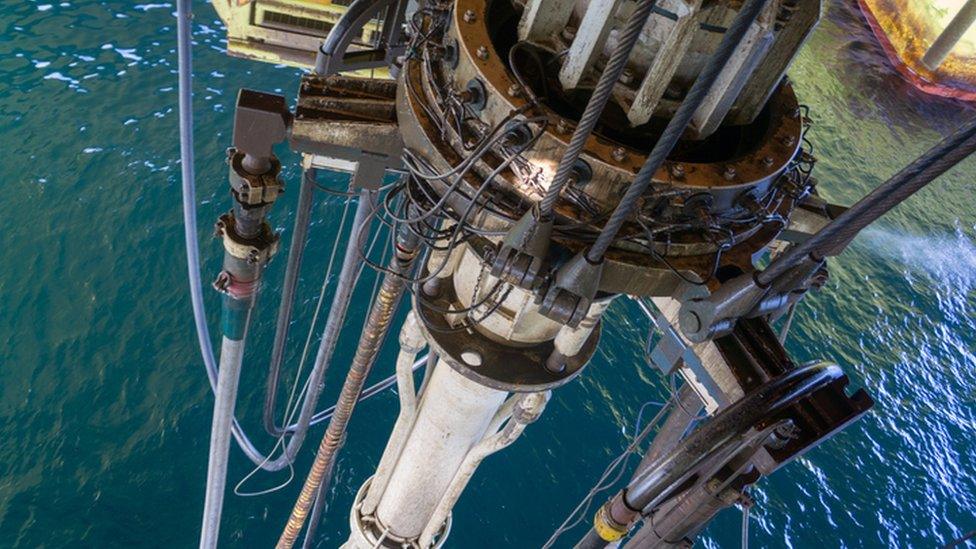
Dozens of platforms will be decommissioned
He said: "Decommissioning is more than a great challenge. It's also a huge opportunity for UK companies to show their engineering skills, powers of innovation and ability to compete on a global scale.
"Decommissioning is also a key part of the UK's transition to low-carbon energy and its aim of reaching net zero by 2050. This is partly because the installations being removed tend to be older and so generate more emissions relative to the oil and gas they produce.
"But it is also because of the growing opportunities for reuse, repurposing and recycling."
The long-term outlook for fossil fuel demand remains uncertain.
Earlier this month, a new global agreement to limit climate change - the Glasgow Climate Pact - was reached at the COP26 summit.
- Published26 November 2019
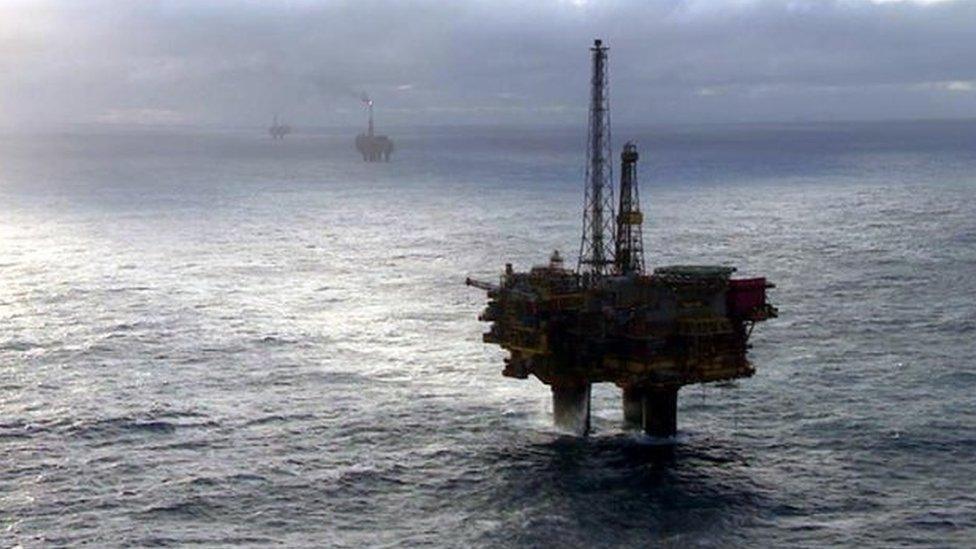
- Published18 June 2019
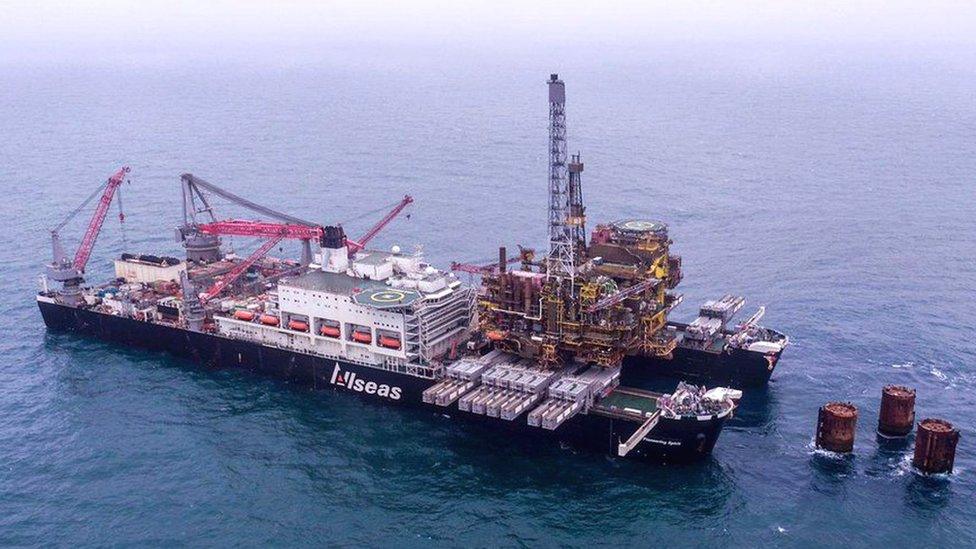
- Published27 November 2018

- Published28 November 2017

- Published8 February 2017
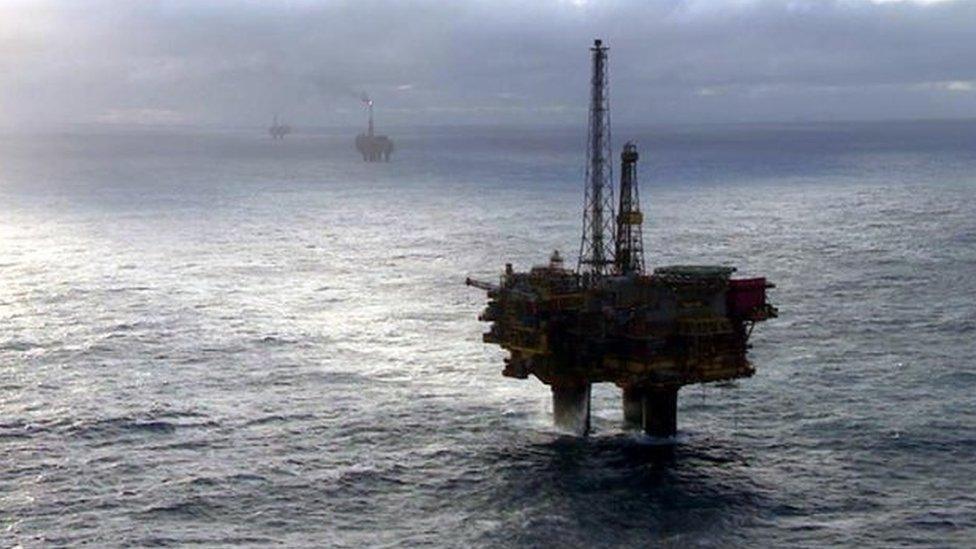
- Published23 November 2016
